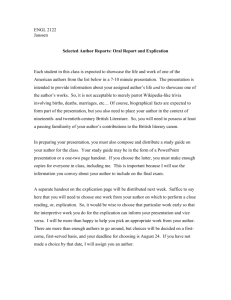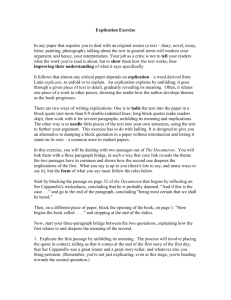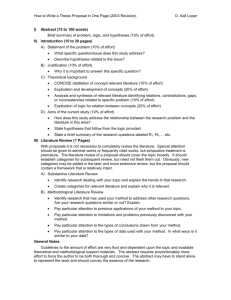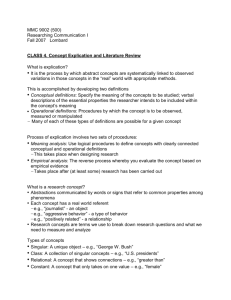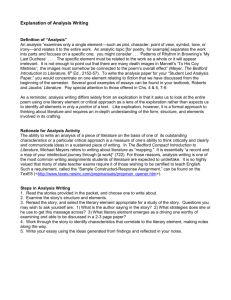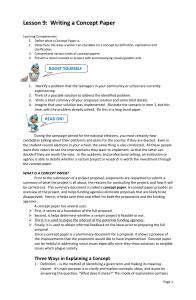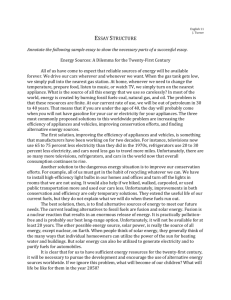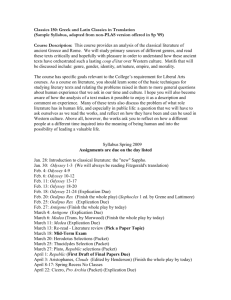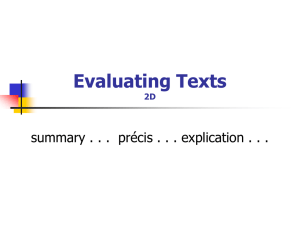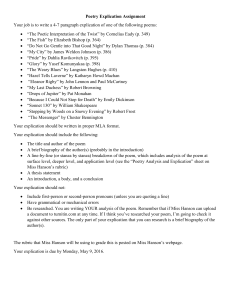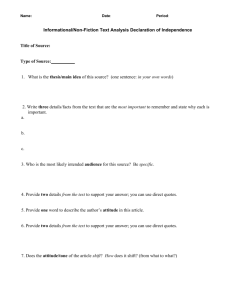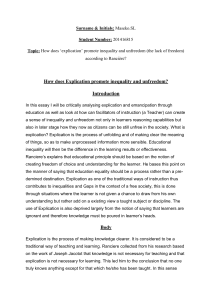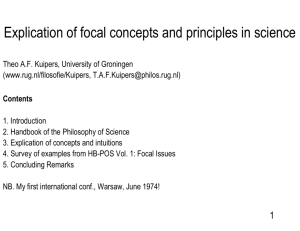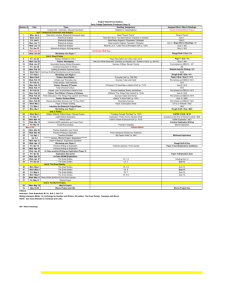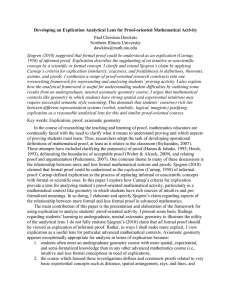ENGL 3840.004 Explication One Due in class, stapled hard
advertisement
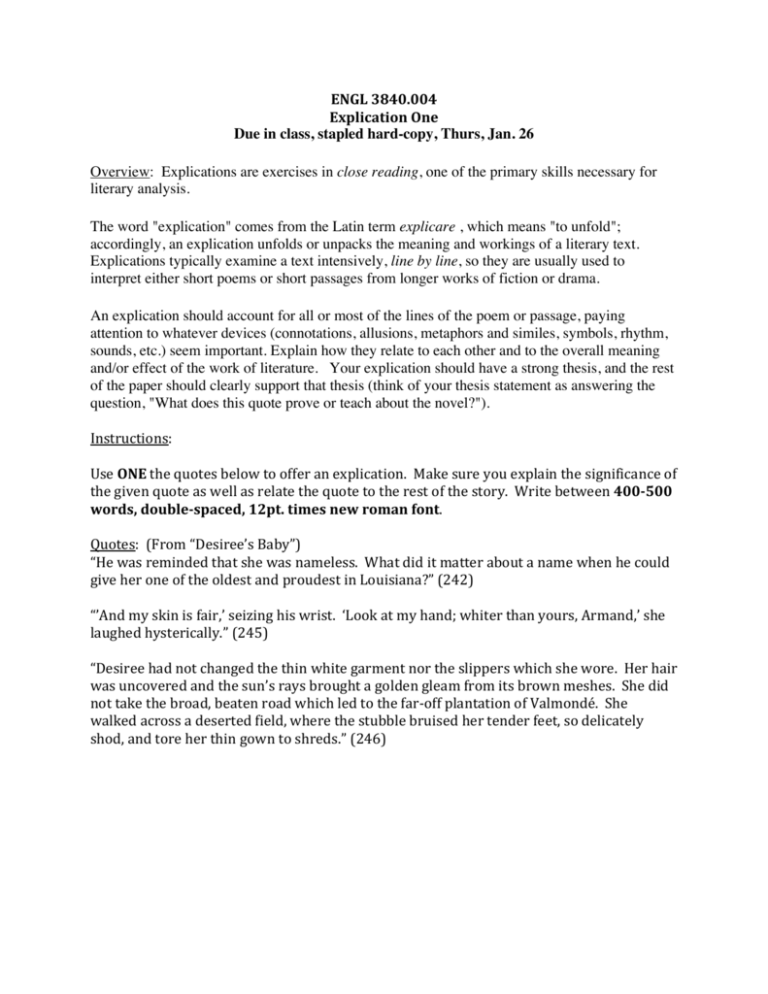
ENGL 3840.004 Explication One Due in class, stapled hard-copy, Thurs, Jan. 26 Overview: Explications are exercises in close reading, one of the primary skills necessary for literary analysis. The word "explication" comes from the Latin term explicare , which means "to unfold"; accordingly, an explication unfolds or unpacks the meaning and workings of a literary text. Explications typically examine a text intensively, line by line, so they are usually used to interpret either short poems or short passages from longer works of fiction or drama. An explication should account for all or most of the lines of the poem or passage, paying attention to whatever devices (connotations, allusions, metaphors and similes, symbols, rhythm, sounds, etc.) seem important. Explain how they relate to each other and to the overall meaning and/or effect of the work of literature. Your explication should have a strong thesis, and the rest of the paper should clearly support that thesis (think of your thesis statement as answering the question, "What does this quote prove or teach about the novel?"). Instructions: Use ONE the quotes below to offer an explication. Make sure you explain the significance of the given quote as well as relate the quote to the rest of the story. Write between 400-­500 words, double-­spaced, 12pt. times new roman font. Quotes: (From “Desiree’s Baby”) “He was reminded that she was nameless. What did it matter about a name when he could give her one of the oldest and proudest in Louisiana?” (242) “’And my skin is fair,’ seizing his wrist. ‘Look at my hand; whiter than yours, Armand,’ she laughed hysterically.” (245) “Desiree had not changed the thin white garment nor the slippers which she wore. Her hair was uncovered and the sun’s rays brought a golden gleam from its brown meshes. She did not take the broad, beaten road which led to the far-­‐off plantation of Valmondé. She walked across a deserted field, where the stubble bruised her tender feet, so delicately shod, and tore her thin gown to shreds.” (246)

